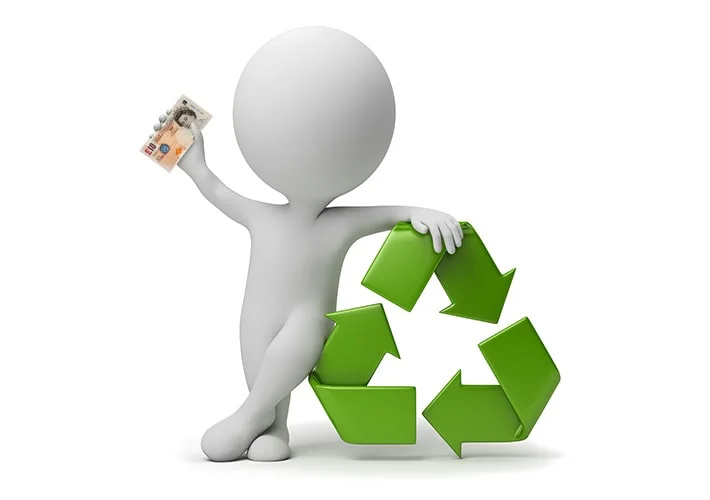
Sending waste to landfill is expensive.
The average charge at the moment is between £80 and £90 per tonne (including the landfill tax and depending on which area of the UK you’re in).
The cost increases every year as local authorities push businesses and households to recycle more.
The UK government has introduced stringent regulations which include reducing the amount of waste councils send to landfill.
Waste prevention charity WRAP says the cost of dealing with waste can be up to 4% of a business’ turnover. The charity says that most businesses can save 1% of that with little or no extra cost.
Think about how much that could save your bottom line.
Under the waste regulations 2011 (England & Wales), businesses also have a legal duty to keep waste to a minimum by recycling and reusing items or recovering item from waste.
It must be sorted and stored safety and companies have to complete a transfer note for each load of waste which leaves their premises.
Businesses must check their waste carrier is registered to deal with their waste and that no loads are dumped illegally.
Businesses disposing of their own waste have to register was a waste carrier to do so.
Breaching the regulations could lead to a business facing a substantial fine.
One of the key things your business could do to save money by commercial recycling, and ensure regulations are complied with, is to use an experienced waste management firm like Inspire Waste.
None of the contractors we use will take items directly to landfill, and their operations are legally compliant. We aim to reduce our clients’ costs and their impact on the environment.
Waste management companies carry out waste audits for their customers, highlighting areas where they can boost recycling rates and cut costs.
Each business is different. Some produce manufacturing waste during their production processes, other office-based businesses have high rates of paper and cardboard waste and need to recycle electronic equipment.
Here’s what your business could recycle:
- Electronic equipment
- Glass
- Metals
- Organic waste
- Paper
- Cardboard
- Plastics
- Textiles
- Tyres
- Wood
Removing these items from your general waste could slash the weight of items you’re sending to landfill.
Newspapers can be recycled into packaging or egg boxes, printer paper can be recycled into high quality paper, and organic waste can be composted.





